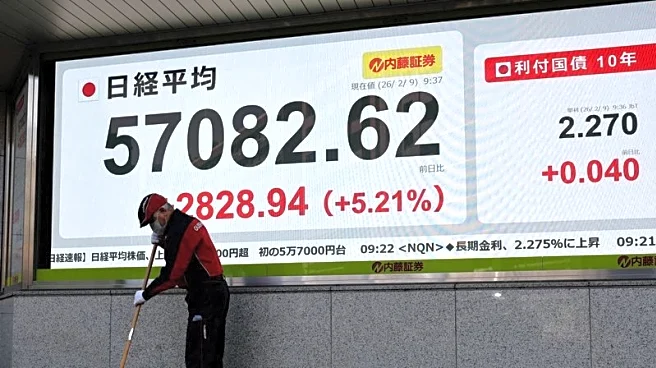What's Happening?
Ian Calderon, a former state Assemblymember, has announced his candidacy for the California governor's race, aiming to replace the term-limited Governor Gavin Newsom. Calderon, who was the youngest majority leader in state history, is positioning himself as a representative of a new generation. He was the first millennial elected to the Assembly at 27 years old in 2012 and chose not to seek reelection in 2020 to focus on his family. Calderon has pledged to address issues such as gas prices, housing affordability, and child care costs. He also expressed interest in integrating cryptocurrency into state programs, stating his intention to hold bitcoin on the state's balance sheet. The race has attracted several candidates, including former Biden administration Health Secretary Xavier Becerra and former U.S. House member Katie Porter.
Why It's Important?
Calderon's entry into the governor's race highlights the growing influence of younger politicians in California's political landscape. His focus on issues like housing and child care resonates with many Californians facing economic challenges. Additionally, his advocacy for cryptocurrency could signal a shift towards more tech-friendly policies in the state. With Democrats holding a significant advantage in voter registration, Calderon's candidacy could further solidify the party's dominance in California. However, his family's political history, including relatives convicted of corruption, may pose challenges to his campaign.
What's Next?
As the race progresses, Calderon will likely continue to emphasize his vision for a new generation of leadership. His stance on cryptocurrency may attract tech-savvy voters, while his focus on economic issues could appeal to families struggling with affordability. The crowded field of candidates will necessitate strategic campaigning to differentiate himself from other Democratic contenders. Observers will watch how Calderon navigates his family's political legacy and whether it impacts his campaign.
Beyond the Headlines
Calderon's proposal to integrate cryptocurrency into state programs could have broader implications for California's economy and its position as a tech innovation hub. If successful, it might encourage other states to explore similar initiatives, potentially influencing national policy on digital currencies. This move could also attract tech companies and investors to California, boosting the state's economic growth.









